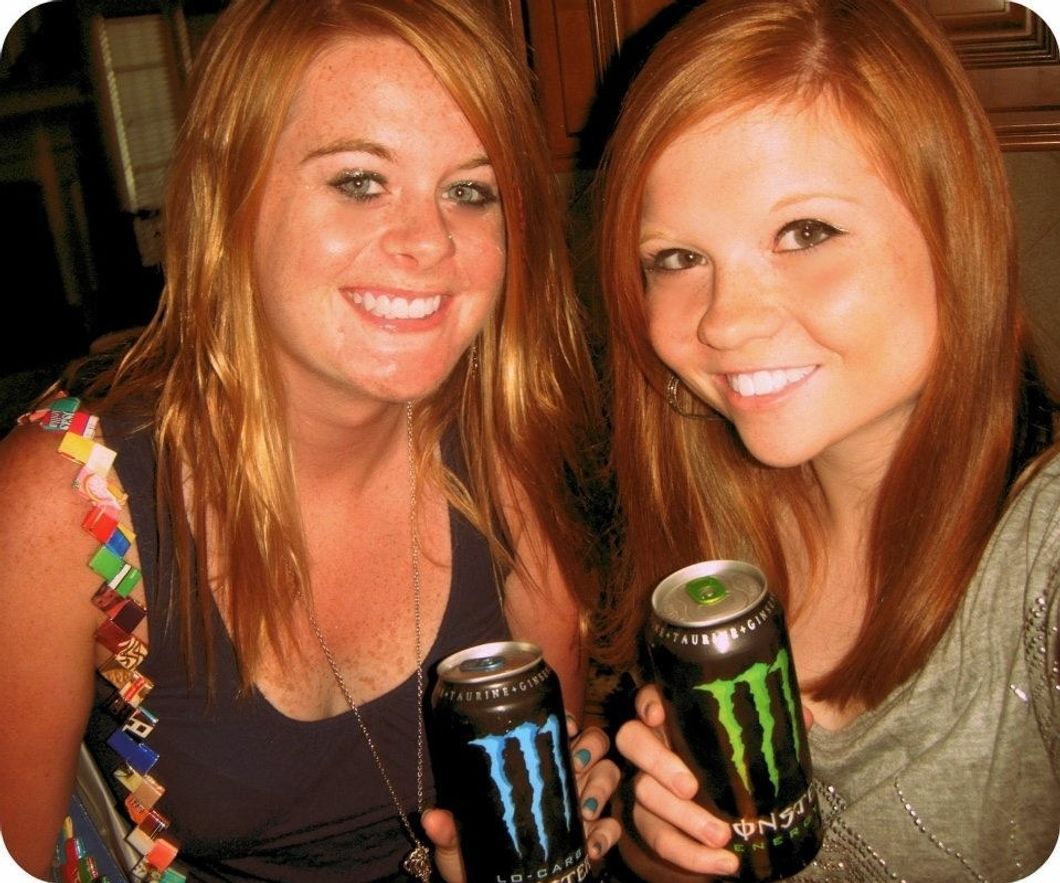Back in middle school health class, I remember the drugs and alcohol unit very vividly. It was the most interesting topic we studied, but I remember being shocked to hear that caffeine was technically classified as a drug. Caffeine is in sodas and energy drinks, I remember thinking, how can it be a drug? But the truth is caffeine enhances dopamine signaling in the brain. While you can't really get addicted to caffeine, you can become dependent on it. That's why many people need that daily cup of coffee or tea and explains why you can develop slight withdrawal symptoms if you do not have your daily dosage.
I've gone through a few phases of caffeine dependency in my life. When I was a lifeguard, I became a frequent visitor to the vending machines at the pool. I often worked doubles and sitting in the hot sun for hours meant I needed ways to stay alert. My favorite drink was a Coca-Cola and I drank one almost every day. One afternoon, I didn't have my coke because I was trying to drink less sugary drinks. I developed an awful headache and realized it was because I hadn't had my caffeine for the day. I was able to break the habit over time (I replaced the sodas with an unsweetened green tea), but lately I've fallen back into the same pattern.
At my current job, we have a drink fridge with beverages that are free to us. My drink of choice is now Diet Coke. I don't drink it every day, but I do have some sort of caffeinated drink on a daily basis. On weekends when I am at home, I usually have to leave early in the morning to seek out some sort of drink, since I don't have soda in my apartment. If I don't have a caffeinated drink early, I wind up having a headache and feeling listless for the rest of the day. While I've avoided being a daily coffee drinker, I am still consuming a lot of caffeine throughout my days to make it through both work and class. And caffeine really aids my headaches, so I reach out for it when I'm feeling weighed down.
But my dependency on caffeine is not the only cycle I have gone through. For the past few years, I have experienced anxiety. It used to manifest itself in the form of stomachaches and vomiting. While I still throw up on a weekly basis, my anxiety has now grown and includes panic attacks. Sometimes at work, I feel a serious sense of "fight or flight", and I suffer from frequent headaches that last 24 - 48 hours. There are days where I feel so jittery and my mind cannot stop running. Having caffeine throughout the day feels necessary, but recently I've realized it's probably making my symptoms worse.
Research backs up my thoughts. Caffeine can double the level of the hormones cortisol and epinephrine in your blood. And while natural sources of caffeine such as matcha, green tea, and yerba mate can be okay, the caffeine found in most energy drinks and sodas is just an added chemical. My body might even feel okay, but my mind gets tripped into a ruminative spiral as a result of caffeine, reducing my ability to cope with stressors and control my fight-or-flight response.
I think it's time to focus on reducing the amount of caffeine I'm drinking. My goal is to gradually eliminate all sodas (diet or otherwise) from my diet, stop drinking energy drinks, and to avoid using energy tablets. I plan to use my food tracking app to track my intake and take notes about the effects.
If I've convinced you to give caffeine sobriety a try as well, please decrease your caffeine consumption gradually. If you go cold turkey, you'll be in caffeine withdrawal, and you won't feel well and will be tempted to reach out for it again.
After a week off of caffeine, check in with yourself. How's your anxiety? Any recent panic attacks? How's your mood? Your sleep? Open your eyes to the role this powerful substance plays in symptoms you thought were just who you are. If anxiety or insomnia, depression, OCD, or any other issue has plagued you for years, I hope caffeine sobriety or reduction helps you achieve a state of better well-being. It may not be a complete "cure," but it will likely be a step in the right direction.

















